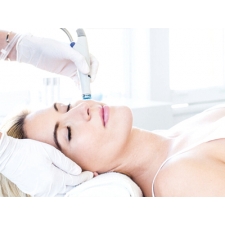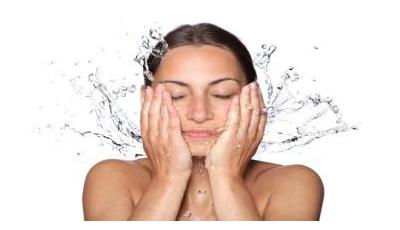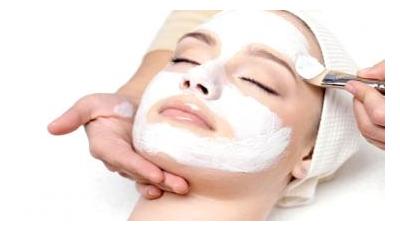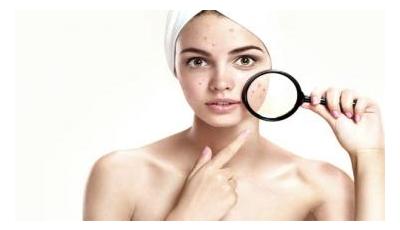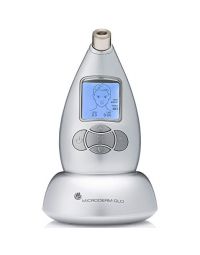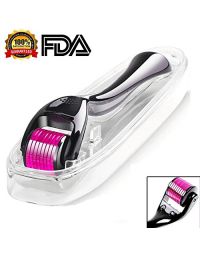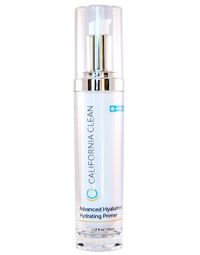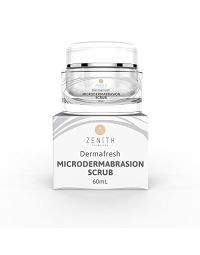Lasers have been used in an increasing number of dermatological applications. Treatment of acne with lasers has become popular recently due to their ability to pinpoint treatment areas, as well as their efficacy, good safety profiles, and relatively few side effects.

Potassium Titanyl Phosphate (KTP) Laser
Lasers are able to administer light at specific frequencies to very fine areas, heating the underlying tissue at its focal point. KTP lasers emit green light with a wavelength of 523 nm. This green wavelength has a higher amount of energy than red lights, but can only penetrate the top layer of skin. Its pinpointed heat can destroy Priopionibacterium acnes, the bacteria species that causes acne. KTP laser light may also cause thermolysis in the blood vessels that supply infected sebaceous glands, cutting off the blood supply of an inflamed pore.
Split-faced clinical trials have been used to test the efficacy of KTP lasers on acne: half of each subject’s face was treated with a KTP laser while the other half was left untreated or given a control treatment. These trials found that once-a-week KTP laser applications were safe, and reduced acne lesions by 35%. This could be a good option if you have mild to moderate acne.
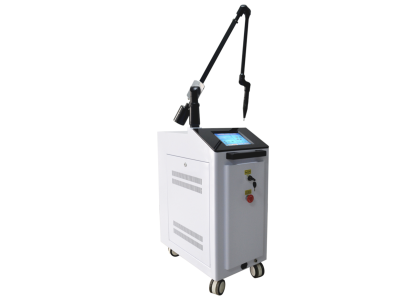

Pulsed Dye Laser
Pulsed dye lasers have recently been used to treat inflammatory cutaneous disorders. They are similar to KTP lasers but emit 585 nm yellow light. While they do not reduce P. acnes populations or oil secretion, they are thought to reduce inflammation by stimulating the production of the anti-inflammatory molecule TGF-β (transforming growth factor beta). Clinical trials with pulsed dye laser treatment found that treatment regimens of 6-12 weeks could reduce the number of inflammatory lesions (zits) on subject’s faces by about 50%. Like other lasers, pulsed dye lasers have been found to be well-tolerated by patients. It is also safe to use if you are already using other acne therapies, such as topical creams or chemical peels.
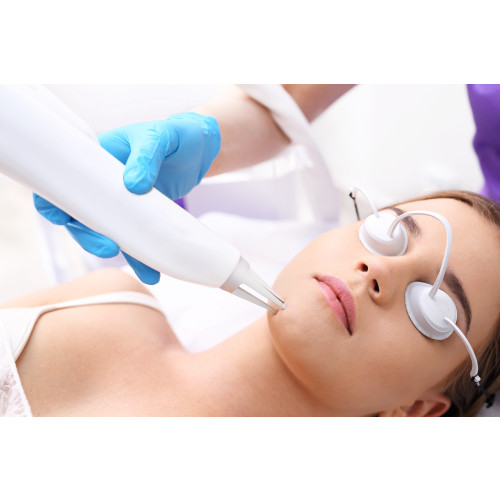

Infrared (IR) Lasers
1320, 1450, and 1540 nm lasers emit photons in the infrared (IR) spectrum. These are able to penetrate deeper into the skin than shorter wavelengths of light, such as in green and yellow lasers. Lasers of 1320 nm wavelengths are effective in reducing inflammatory lesions and oil secretion in patients with moderate to severe acne. Studies on 1540 nm erbium lasers likewise found them to be helpful in reducing acne in patients with moderate to severe cases, with results still maintained at their 2-year follow-up appointments. 1450 nm diode lasers offer the quickest relief, however. Improvements can be seen after just one treatment with a 1450 nm diode laser. In one trial, the number of lesions was reduced by 83% after three treatments at 4- or 6-week intervals.
IR lasers have been some of the most effective, long-lasting treatments for acne in recent times. So, if you are thinking of trying a longer-term therapy for a tougher case of acne, this may be the place to start. Each of these lasers have been generally well-tolerated, meaning you likely will experience very little discomfort.
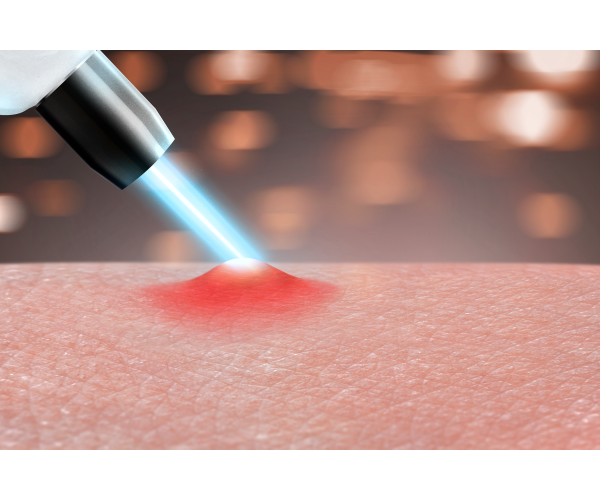
[1] Pei S, Inamadar AC, Adya KA, Tsoukas MM. 2015. "Light-based therapies in acne treatment." Indian Dermatol. Online J.6(3):145-157. https://www.ncbi.nlm.nih.gov/pmc/articles/PMC4439741/
[2] Rai R, Natarajan K. 2013. “Lase and light based treatments of acne.” IJDVL 79(3):300-309. http://www.ijdvl.com/article.asp?issn=0378-6323;year=2013;volume=79;issue=3;spage=300;epage=309;aulast=Rai
[3] J[1] Kim RH, Armstrong AW. 2011. “Current state of acne treatment: Highlighting lasers, photodynamic therapy, and chemical peels.” Dermatology Online Journal 17(3):2. https://escholarship.org/uc/item/0t40h9px).
-
Face Washes for Acne
By Dr. KarenDecember 28, 2021 -
Acne Scar Removal
By Dr. KarenDecember 28, 2021 -
Back Acne
December 29, 2021 -
Acne Vitamins
By Dr. KarenMarch 8, 2022 -
Hyaluronic Acid for Acne
By Dr. AnnaDecember 17, 2021
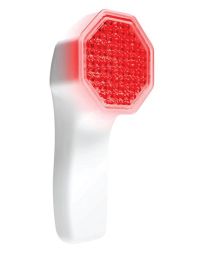
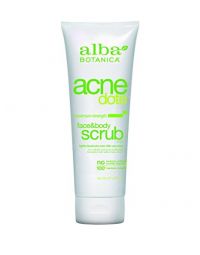
Search the blog
Article Categories
- All Articles (95)
- Rating Charts (1)
- Beauty & Skincare (17)
- FAQ (0)
- Hair Care (9)
- Health & Wellness (12)
- Anti-Aging (4)
- Kid's Health (0)
- Makeup (2)
- Men's Health (2)
- Oral Care (3)
- Sunscreen (7)
- Skin Tools & Treatments (10)
- Supplements (26)
- Videos (0)

